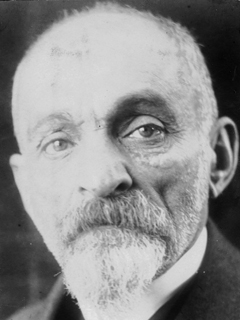
Publication details
Publisher: Springer
Place: Berlin
Year: 2016
Pages: 213-227
Series: Studies in East European Thought
Full citation:
, "Lev Shestov's philosophy of freedom", Studies in East European Thought 68, 2016, pp. 213-227.


Lev Shestov's philosophy of freedom
pp. 213-227
in: Marina F. Bykova (ed), Russia and the West: Bridging the philosophical traditions, Studies in East European Thought 68, 2016.Abstract
This article is devoted to the problem of freedom in the writings of the Russian philosopher, Lev Shestov. For him, attaining spiritual freedom means overcoming existential anxiety about fate (to borrow Paul Tillich's term) on the way to comprehending God. Shestov's work is aimed at liberating man from the power of an extrinsic anonymous, objective order that consigns man to suffering here on earth. By correlating the interpretation of existential experience and the Bible Shestov arrives at his own religious-philosophical concept of freedom. The authors of this article examine three mythologemes that are fundamental to Shestov's philosophy of freedom: "creation out of nothing" (as the ultimate expression of dispensation), "the Fall" (as the metaphysical ground for irrationalism), and eschatological "annulment of past evil" (as the moral correlate of theistic voluntarism).
Cited authors
Publication details
Publisher: Springer
Place: Berlin
Year: 2016
Pages: 213-227
Series: Studies in East European Thought
Full citation:
, "Lev Shestov's philosophy of freedom", Studies in East European Thought 68, 2016, pp. 213-227.

